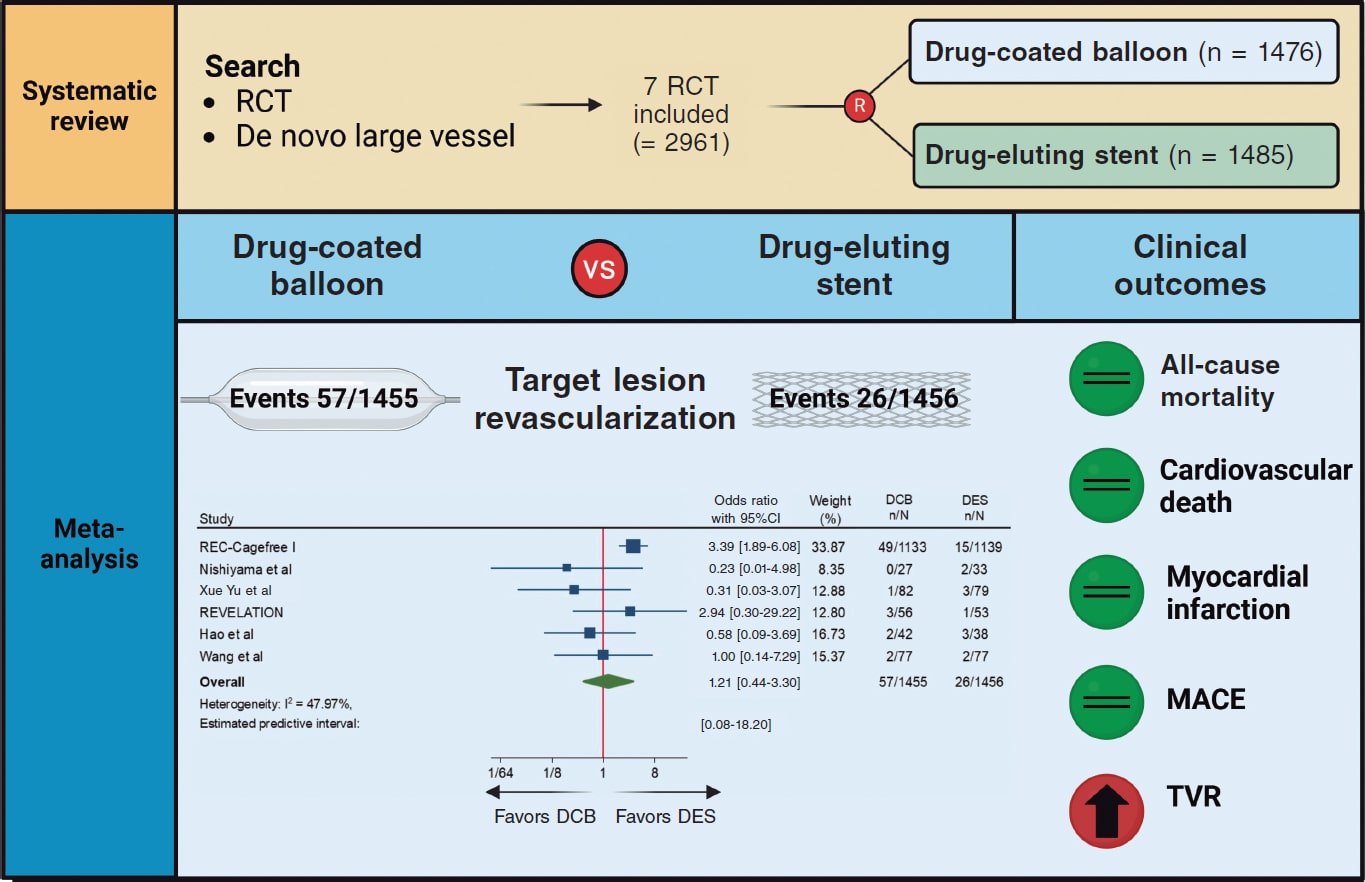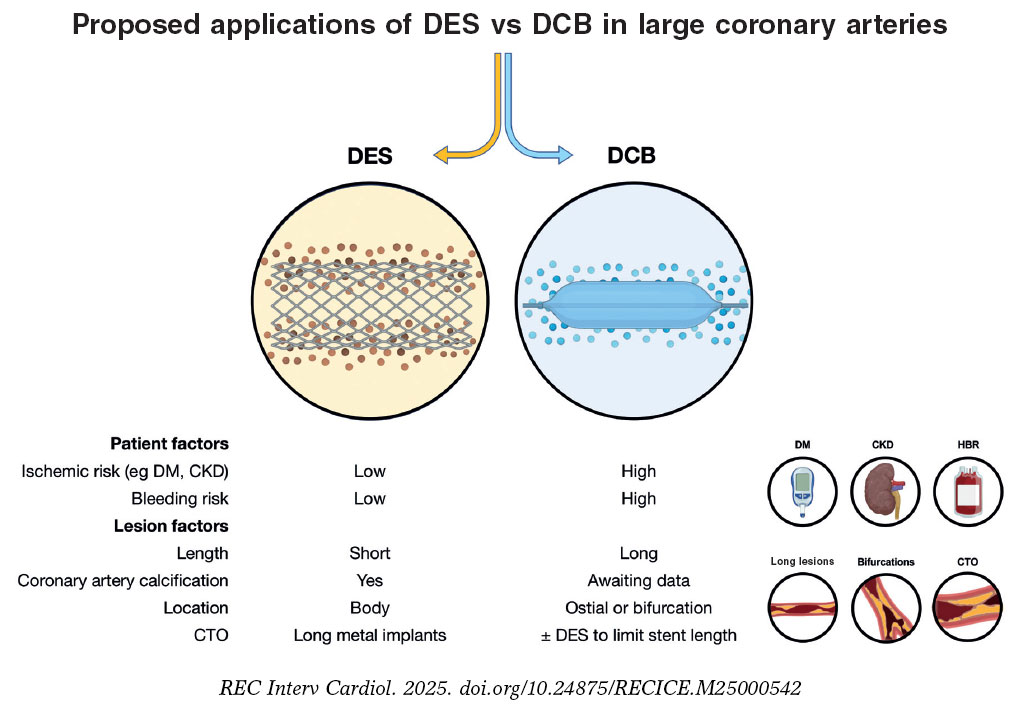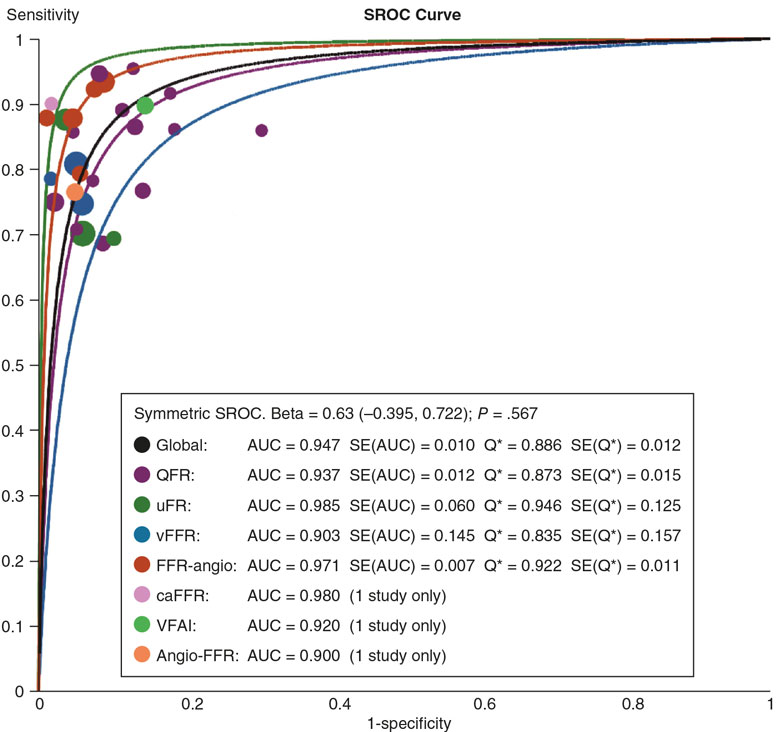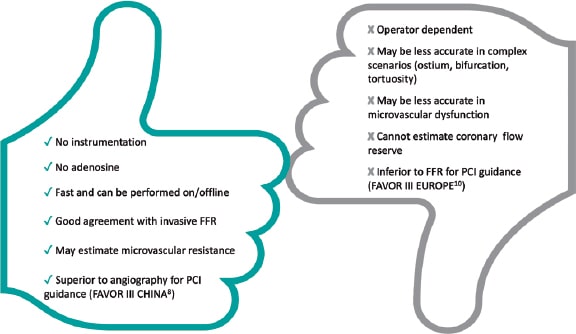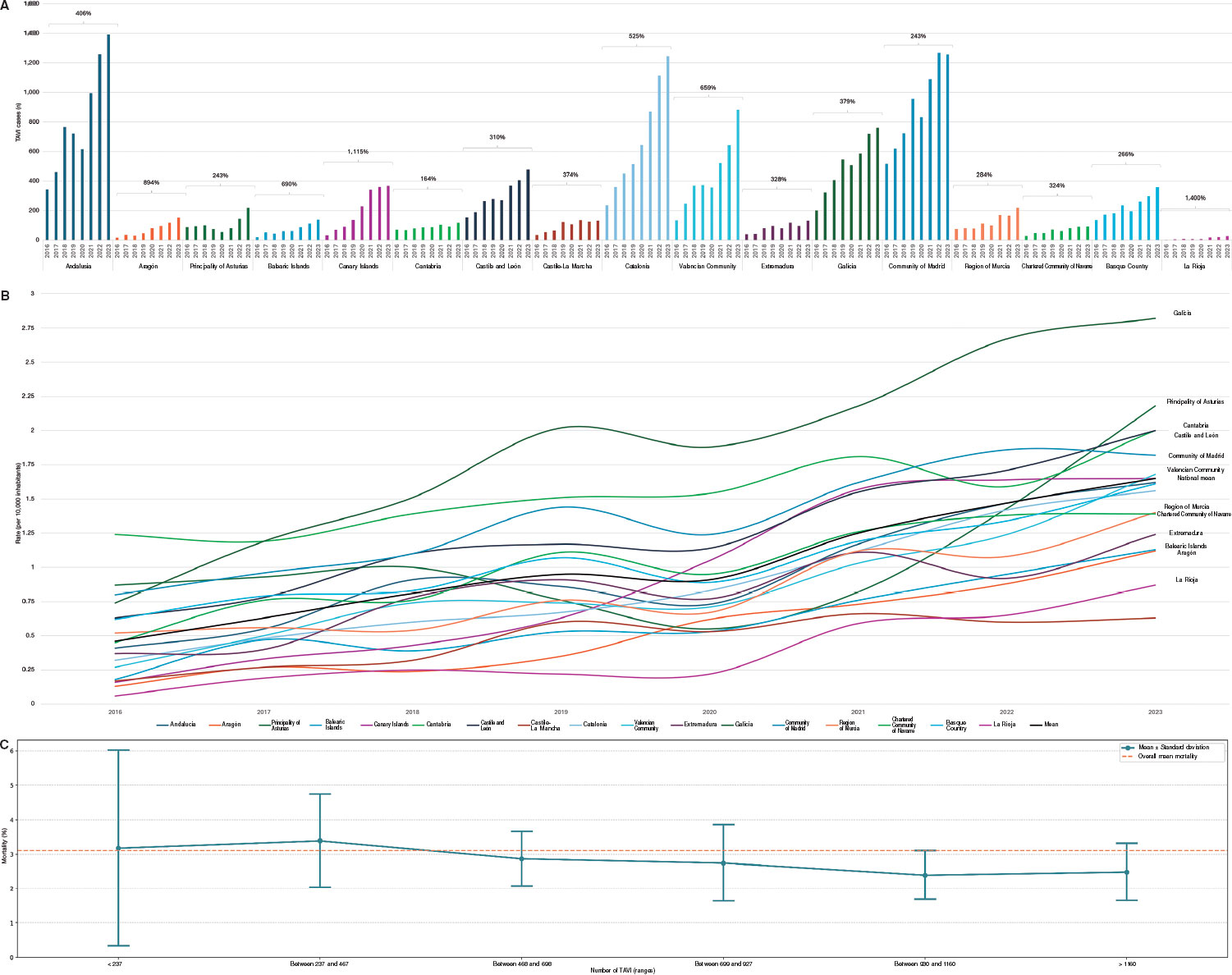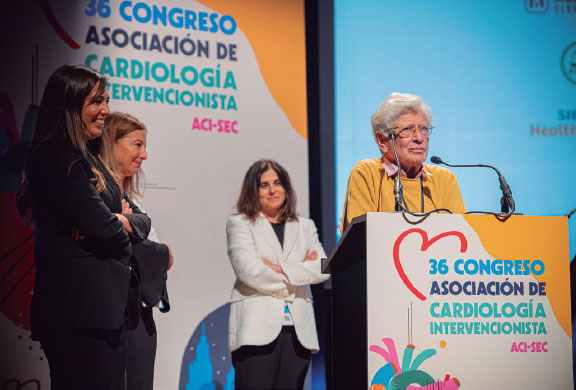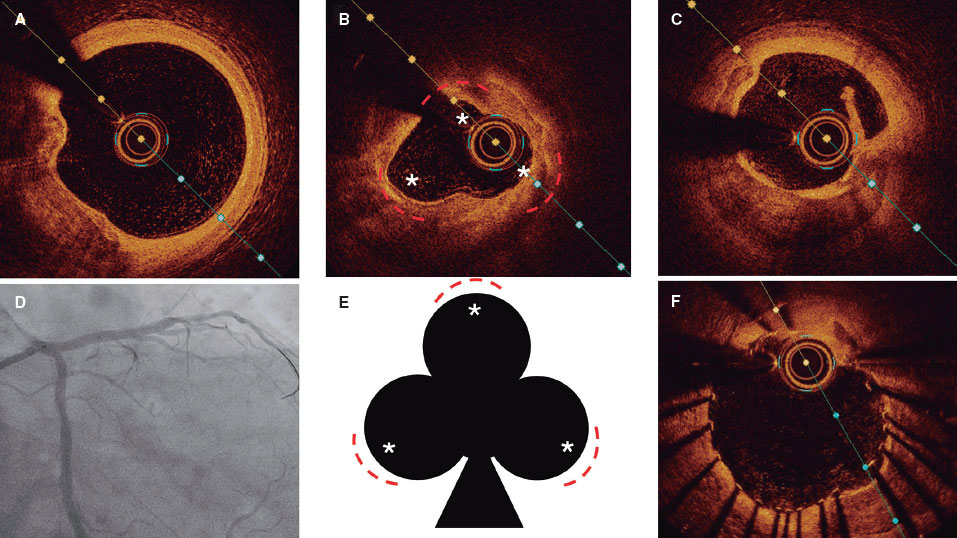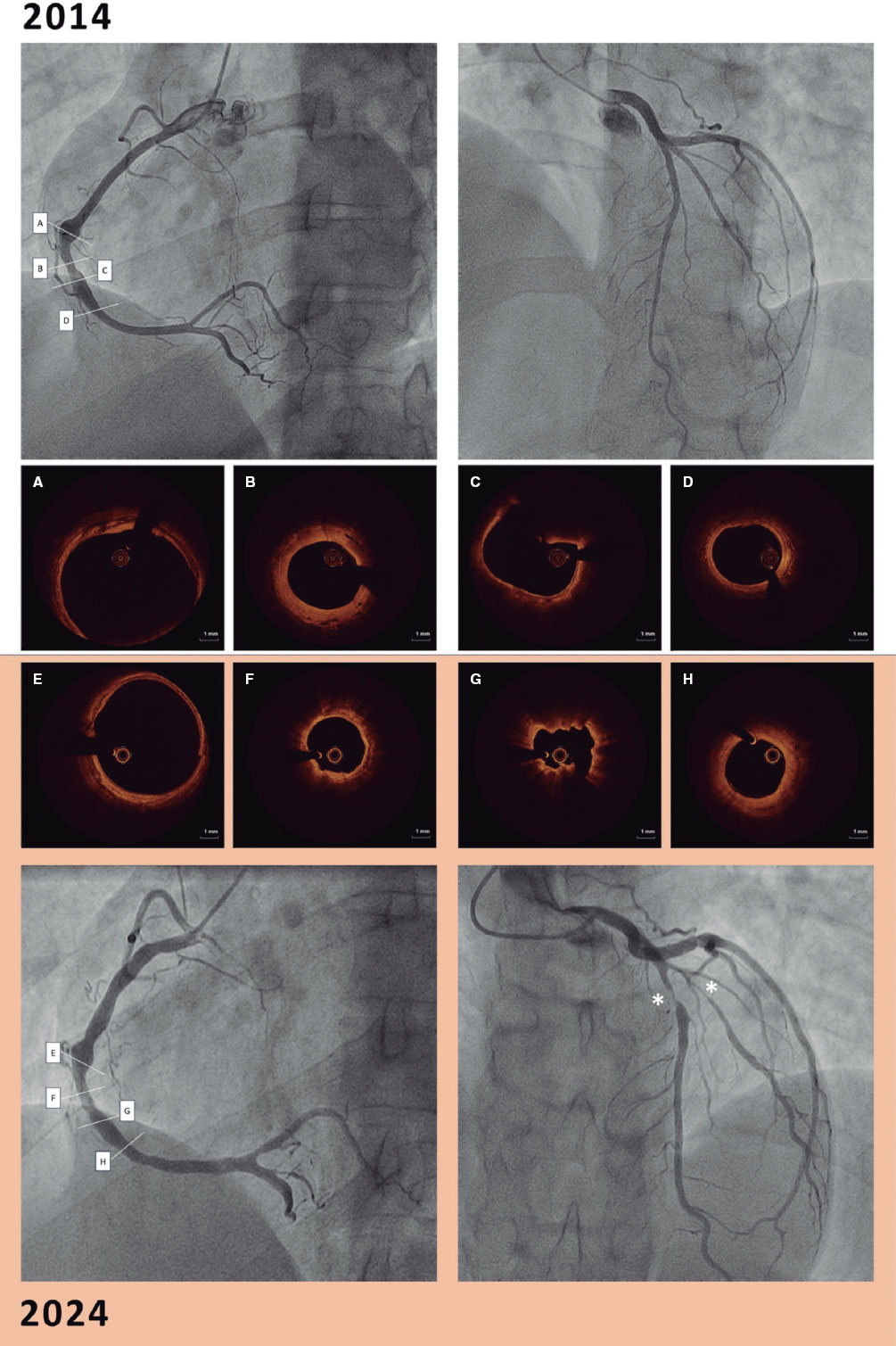Ethical considerations
All of the journal's processes are conducted strictly in accordance with international ethical guidelines on the publication of biomedical research and information, as are the steps taken to ensure the integrity and accuracy of the research published. The journal will investigate any ethical infraction taking all reasonable measures for its prompt resolution, acting with proportionality and if necessary, involving the institutions of origin of those concerned. As a member of the Committee on Publication Ethics (COPE), the journal is committed to the highest standards in publication ethics and adheres to its practices and recommendations.
The views and opinions expressed in this journal are exclusively those of the authors and not of the Spanish Society of Cardiology, the ACI-SEC or the Publisher. The latter accepts no responsibility for any losses, claims, procedures, costs, expenses, damage or other responsibility of any type or any form arising directly or indirectly from the content of the publication.
PEER REVIEW
REC: Interventional Cardiology is a double-blind peer-reviewed journal. Both authors and reviewers remain anonymous at all times. Peer-reviewed articles are original articles, clinical cases, images in cardiology, letters to the Editor, and special articles. Article typologies other than these can also undergo a peer review process at the editorial board's discretion.
To ensure that this standard is maintained for all articles authored by members of the Editorial Team, the following internal procedures are followed:
Given our field of research, REC: Interventional Cardiology considers acceptable for editors to publish their own work in their journal.
When an article authored by an "editor-author" (authors that are also Staff Editors and/or Advisory Board members) is received, the Editorial Office blinds the editor/member in the Editorial Manager (EM) system. To minimize any bias during the editorial process, another member of the editorial board will handle the manuscript independently from the editor-author.
The editor-author does not have access to the editorial progress nor to the reviewers' or editors' comments in any of the editorial stages and will only receive the standard correspondence sent through the EM system informing them about the editorial process.
The editor-author is also excluded from any editorial discussion regarding their article, whether orally or in writing. This includes correspondence, editorial board meetings and its minutes, and journal scheduling meetings.
To ensure that the peer review process is handled independently from the author, several external reviewers will be allocated, and the revisions will be carried out following the journal's double-blind system. Extra precautions are taken when selecting the reviewers as to avoid potential conflicts of interest to make the process as transparent and as rigorous as possible.
Should the paper be accepted, a commentary regarding the authorship and the transparency during the reviewing process is included in the Conflicts of Interest section: X.XX is associate editor/editor-in-chief of REC Interventional Cardiology. The journal's editorial procedure to ensure impartial handling of the manuscript has been followed.
For further information please check REC: Publications' Reviewers' Guidelines.
ETHICAL RESPONSIBILITIES
Authors submitting a manuscript accept full responsibility for its content as defined by the International Committee of Medical Journal Editors.
The research reported in papers submitted to REC: Interventional Cardiology must be carried out in accordance with internationally accepted recommendations for clinical investigation (Declaration of Helsinki of the World Medical Association, revised October 2013).
Studies reporting animal experiments must comply with the ARRIVE guidelines and be performed in accordance with current national legislation (Royal Decree 53/2013 of 1 February, on basic standards for the protection of experimental animals), and the European Union Directive 2010/63/EU for animals used for scientific purposes, or the guidelines on the care and use of laboratory animals of the National Institutes of Health (NIH Publications, revised 2011: https://grants.nih.gov/grants/olaw/guide-for-the-care-and-use-of-laboratory-animals.pdf). Authors must clearly state in their manuscripts that they have followed these guidelines.
Systematic reviews and meta-analyses should follow the PRISMA statement criteria and checklist, and patient cases should follow the CARE case report guidelines and checklist
CLINICAL TRIALS: DESCRIPTION AND REGISTRATION
Randomized controlled trials should be presented according to the CONSORT guidelines. At manuscript submission, authors must provide the CONSORT checklist accompanied by a flow diagram illustrating patients' progress through the trial, including recruitment, enrollment, randomization, withdrawal, and completion, and a detailed description of the randomization procedure.
Registration in a public trials registry is a condition for publication of clinical trials in this journal, in accordance with International Committee of Medical Journal Editors recommendations. Trials must be registered at or before the start of patient enrollment. The clinical trial registration number should be included at the end of the abstract of the article.
A clinical trial is defined as any research study that prospectively assigns human participants or groups of humans to one or more health-related interventions to evaluate the effects on health outcomes. Health-related interventions include any intervention used to modify a biomedical or health-related outcome (eg, drugs, surgical procedures, devices, behavioral treatments, dietary interventions, and process-of-care changes). Health outcomes include any biomedical or health-related measures obtained in patients or participants, including pharmacokinetic measures and adverse events. Purely observational studies (those in which the assignment of the medical intervention is not at the discretion of the investigator) will not require registration.
INFORMED CONSENT
If the work involves the use of human subjects or animals, authors must include a statement that the procedures performed were carried out in accordance with The Code of Ethics of the World Medical Association, the Declaration of Helsinki for experiments involving humans and the Recommendations for the Conduct, Reporting, Editing, and Publication of Scholarly Work in Medical Journals (updated, May 2022). Authors must state that written informed consent was obtained from all participants and is available. The privacy rights of human subjects must always be observed and all information/images must be anonymized to guarantee the protection of personal data.
ORIGINALITY AND AUTHORIZATION
Submission of a manuscript implies a) that it has not been previously published (except in the form of an abstract, conference proceeding, academic thesis, or online first publication; b) is not currently submitted for publication elsewhere; c)that its publication has been approved by all authors and tacitly or explicitly by the responsible authorities where the work was carried out; and d) that, if accepted, it will not be published for commercial purposes elsewhere in the same form, in English or in any other language, including electronically, without the written consent of the copyright-holder.
In line with the position of the International Committee of Medical Journal Editors, the journal will not consider as prior publication results that are posted in the same clinical trials registry as the primary registration if the results posted are presented in the form of a brief structured abstract or table (less than 500 words). However, dissemination of results in other circumstances (eg , investors' meetings) is discouraged and may jeopardize consideration of the manuscript. Authors should fully disclose all inclusion in registries of results of the same or closely related work.
To verify originality, the manuscript may be checked by the originality detection service Similarity-Check, (Similarity Check). This service is available to the publisher as a member of Crossref, through access to the powerful plagiarism detection software Turnitin, iThenticate (iThenticate).
When including excerpts from other copyrighted works (including figures and tables), the author(s) must obtain written permission from the copyright owners, credit the source(s) in the article and include it in the references section. Permission is to be obtained both for the English and the Spanish version of the article, both in print and electronic format. The journal will not assume any cost or payment related to this.
When an author submits an article to REC: Interventional Cardiology, the journal will send an e-mail to all authors to ensure that they are aware of being named as authors of the manuscript.
CONFLICTS OF INTEREST
All authors must complete the International Committee of Medical Journal Editors conflict of interest form (International Committee of Medical Journal Editors). Declaration of individual conflicts of interest is mandatory at submission of the revised version of the manuscript. During the manuscript submission process, the corresponding author will be responsible for declaring all conflicts of interest related to the article in a specific section for this purpose. If the manuscript is accepted, this information will be included in the final article in a new section entitled Conflicts of interest.
FOUNDING SOURCES
Authors must identify institutions that have provided financial support for the performance of the research and/or preparation of the article and to briefly describe the role of the sponsor(s), if any, in study design; in data collection, analysis, and interpretation; in drafting the manuscript; and in the decision to submit the article for publication. If the funding source(s) had no such involvement, then this should be stated.
List funding sources in the following standard format required by funding bodies:
Funding: This work was supported by the National Institutes of Health [grant numbers xxxx, yyyy]; the Bill & Melinda Gates Foundation, Seattle, WA [grant number zzzz]; and the United States Institutes of Peace [grant number aaa].
It is not necessary to include detailed descriptions on the program or type of grants and awards. When funding is from a block grant or other resources available to a university, college, or other research institution, submit the name of the institute or organization that provided the funding.
AUTHORSHIP
REC: Interventional Cardiology ascribes to the authorship criteria for scientific articles defined by the International Committee of Medical Journal Editors (International Committee of Medical Journal Editors). Consequently, each person designated as an author must meet all of the following requirements:
- Have substantially contributed to the conception or design of the work or the acquisition, analysis, or interpretation of the data for the work
- Have drafted the work or critically revised it for intellectual content
- Have granted final approval of the version to be published
- Have agreed to be accountable for all aspects of the work in ensuring that questions related to the accuracy or integrity of any part of the work are appropriately investigated and resolved
Authors are advised to carefully review the list and order of authors before submitting their manuscript at the time of the original submission. Any addition, deletion, or rearrangement of authors' names in the authorship list should be made through the authorship modification form, providing: a) the reason for the change in author list, and b) written confirmation from all authors that they agree with the addition, removal, or rearrangement. Addition or removal of authors must include confirmation from the author being added or removed. The completed form must be sent through the manuscript management system together with the new version of the article using the Cover letter menu item. The editor assigned to the manuscript will individually review each case.
If the manuscript has already been accepted, the editor will consider the addition, deletion, or rearrangement of authors only in exceptional circumstances. While the editor considers the request, publication of the manuscript will be suspended.
DATA SHARING POLICY
To ensure the transparency and reproducibility of research, and whenever ethically possible, REC: Interventional Cardiology strongly recommends that authors make their research data publicly available through a data repository. This information should be stated in the cover letter. If data disclosure is not possible, the authors should justify the reasons.
REC: Interventional Cardiology might ask authors for their research data at any point during the editorial process.
OPEN ACCESS
REC: Interventional Cardiology is an open access journal and its content is freely available. Authors are not required to pay for publication of their articles.
All journal content is licensed under a CC BY-NC-ND license.
Its reuse is allowed on the following terms:
- Creative Commons Attribution-NonCommercial-No Derivatives (CC BY-NC-ND).
- You may not use the material for commercial purposes. You may copy, redistribute, and include the material in a in a collective work (for example, an anthology), so long as there is no commercial purpose, the material is not altered or modified nd the original work is appropriately cited.
CORRECTIONS
The journal will use the necessary means to correct the literature and ensure the integrity of the published content. To do so, it shall use the appropriate means (corrections, expressions of concern, retractions) depending on the problem detected and its impact, as soon as possible after the identification of the problem. For retractions, REC: Interv Cardiol follows the COPE guidelines.
COPYRIGHT AND AUTHORS' RIGHTS
Acceptance of a manuscript for publication implies the automatic transfer of publishing rights to the Spanish Society of Cardiology.
The authors are allowed to reuse, copy, and distribute the material in any medium or format provided that it is for non-commercial purposes and that authorship is duly acknowledged. For commercial use please contact our Publisher ().
DATA PROTECTION
To facilitate article publication, personal data will be entered into an automatic database belonging to the Spanish Society of Cardiology. Unless otherwise indicated, by submitting their articles, authors expressly authorize that their first name, second name(s), contact address, and e-mail address will be published in REC: Interventional Cardiology in order to acknowledge authorship of the article and to assist readers in contacting them.
INQUIRIES AND APPEALS
Please contact our editorial office (; +34 917 242 370) if you have any questions. For any inquiry or appeal related to the editorial process of your article or the final editorial decision, send an e-mail to the Editor-in-Chief. The Editor-in-Chief will personally review all complaints and appeals, consulting, if necessary, other members of the Editorial Team. We will try to answer any appeals as quickly as possible and within 15 days. Communication will be via e-mail, at the address supplied by the author, or by telephone, if so required by either party.


